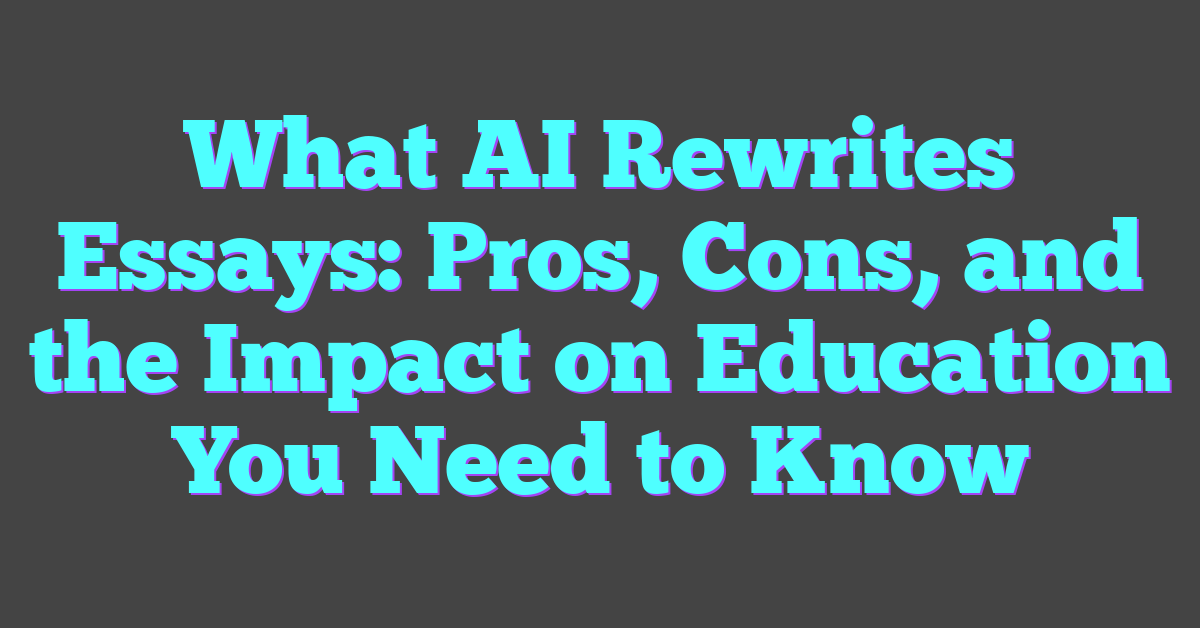Artificial Intelligence (AI) has been making waves across various sectors, and the field of education is no exception. As the Union Public Service Commission (UPSC) exams in India continue to be one of the most challenging and prestigious, the incorporation of AI presents both exciting opportunities and notable challenges.
On one hand, AI can revolutionize the way aspirants prepare for these exams, offering personalized learning experiences and efficient study plans. On the other, there’s a growing concern about the potential downsides, such as over-reliance on technology and the undermining of traditional learning methods. This article delves into the pros and cons of using AI in UPSC preparation, aiming to provide a balanced perspective for aspirants and educators alike.
Understanding AI Pros and Cons for UPSC Aspirants
Artificial Intelligence (AI) dramatically influences UPSC exam preparation. It offers various advantages but also introduces certain risks that aspirants need to be aware of.

The Role of AI in Enhancing UPSC Preparation
AI personalizes learning experiences, tailoring study materials to aspirants’ individual needs. Platforms like Embibe use AI to analyze students’ strengths and weaknesses, delivering customized practice questions and learning modules. This personalized approach ensures that students focus on areas needing improvement, enhancing their overall efficiency.
AI also optimizes time management. Tools like Newton’s AI can create efficient study schedules based on aspirants’ available time, ensuring a balanced approach to covering the syllabus. These schedules adapt in real-time, making it easier for students to stay on track.
AI-powered analytics provide deeper insights into performance metrics. Applications like Gradeup use AI algorithms to track progress, identify patterns, and adjust study plans accordingly. This data-driven insight helps aspirants make informed decisions about their study strategies.
Potential Risks and Downsides of AI in UPSC Studies
Over-reliance on AI can undermine essential skills. Traditional learning methods foster critical thinking and problem-solving, which AI tools might not fully replicate. If students depend too much on technology, they might miss out on these crucial aspects.
AI tools sometimes offer generic solutions. While AI can tailor content, it might not capture the nuances of individual learning styles as effectively as experienced human educators. This limitation can lead to less effective studying for some aspirants.
It’s critical to consider data privacy. AI platforms collect vast amounts of data on students. If these platforms don’t follow stringent data protection measures, personal information might be at risk. This data security issue is vital for students to consider when choosing AI-based learning tools.
Balancing the use of AI with traditional study methods can provide the best of both worlds, enhancing preparation without losing the essence of critical thinking and personalized teaching fostered by human educators.
AI in Current Affairs: A Tool for UPSC Candidates
Artificial Intelligence (AI) enhances the preparation of UPSC candidates by streamlining the learning process, helping them grasp complex current affairs effectively.
How AI Influences the Understanding of Global Issues
AI enables UPSC candidates to digest vast amounts of information and stay updated on global issues. Using Natural Language Processing (NLP), AI platforms like IBM Watson extract, classify, and summarize news articles from reliable sources. This helps candidates focus on key developments without sifting through excessive data. Additionally, sentiment analysis tools identify prevailing opinions and trends, providing a well-rounded understanding of international events. For example, platforms such as Factmata identify fake news, ensuring that aspirants rely on accurate information.
AI’s Impact on Economic and Political Analysis
AI aids in analyzing complex economic and political scenarios. Machine learning algorithms assess economic data trends, offering insights into global markets. AI models in tools like Sentieo predict economic outcomes based on historical and real-time data. Furthermore, AI assists in understanding political landscapes by analyzing speech patterns and election results. Tools like Quid visually represent connections between political events, helping candidates grasp intricate political dynamics. These AI-driven analyses optimize the preparation strategy by providing clear, concise, and relevant data.
Ethical Considerations of AI in UPSC Syllabus
AI’s integration into the UPSC syllabus brings forward several ethical considerations. Understanding these ethical dimensions is crucial for both educators and aspirants to navigate the evolving landscape responsibly.
Teaching Ethics and Responsibility in the Age of AI
Educators need to focus on ethics and responsibility alongside AI concepts while teaching. Key areas include:
- Bias and Fairness: Algorithms used in AI can exhibit bias. It’s vital for students to learn how to identify and mitigate bias in AI models to ensure fairness.
- Privacy Concerns: AI often processes large amounts of personal data. Emphasizing the importance of data privacy helps students understand and protect sensitive information.
- Transparency and Accountability: AI decisions need transparency. Educators should teach methods to document AI processes and ensure accountability in AI-driven decision-making.
- Impact on Employment: Discussing AI’s potential impact on jobs encourages students to think critically about the socioeconomic implications of AI deployments.
Integrating these ethical aspects into the syllabus encourages a holistic understanding of AI’s role in society.
Practical Tips for Integrating AI into UPSC Preparation
Harnessing AI for UPSC exam prep can streamline study sessions and enhance learning outcomes. However, careful integration and balance with traditional methods are necessary.
Selecting the Right AI Tools and Resources
Identifying effective AI tools is key. Options like adaptive learning platforms, virtual tutors, and AI-driven test generators can offer substantial benefits. Adaptive learning platforms (e.g., Coursera’s customized courses) tailor study schedules based on individual performance. Virtual tutors (e.g., Duolingo’s chatbots) provide instant feedback and personalized assistance. AI-driven test generators (e.g., Magoosh) create customized practice tests to target weak areas.
Balancing AI and Traditional Study Methods
Incorporating AI with traditional study techniques ensures a well-rounded preparation. Combining AI tools with traditional methods (e.g., NCERT books) covers the vast UPSC syllabus comprehensively. AI enhances efficiency in tackling current affairs, while textbooks offer depth. Engaging in group studies with peer discussion fosters critical thinking beyond AI capabilities. Combining note-taking apps with handwritten notes aids memory retention through dual encoding.
Conclusion
AI offers immense potential to revolutionize UPSC exam preparation by providing personalized learning experiences and optimizing study sessions. However, it’s crucial for candidates to avoid over-reliance and ensure a balanced approach. By integrating AI tools with traditional methods like NCERT books and group studies, aspirants can enhance their comprehension and critical thinking skills. Choosing the right AI tools and using them wisely can streamline the preparation process, making it more efficient and effective. With careful integration, AI can be a powerful ally in the journey toward UPSC success.
Frequently Asked Questions
How does AI impact UPSC exam preparation?
AI impacts UPSC exam preparation by offering personalized learning experiences and optimizing study schedules. This adaptability helps candidates focus on their weak areas and improve efficiently, although over-reliance can be a drawback.
Can AI help with understanding current affairs for UPSC?
Yes, AI can significantly aid in understanding current affairs. AI tools can curate and summarize news articles, helping candidates stay updated and better comprehend critical economic and political developments relevant to the UPSC syllabus.
What are some practical tips for using AI in UPSC preparation?
Some practical tips include selecting the right AI tools like adaptive learning platforms, virtual tutors, and AI-driven test generators. These tools can help streamline your study sessions and enhance learning outcomes when balanced with traditional study methods.
Should AI replace traditional study methods for UPSC?
No, AI should not replace traditional study methods. It is essential to use AI tools alongside conventional resources like NCERT books and group studies, which foster critical thinking and comprehensive understanding essential for the UPSC exam.
How can AI tools be integrated effectively into a UPSC study plan?
To integrate AI tools effectively, candidates should use them to supplement their studies. This includes utilizing AI-driven test generators for practice, adaptive learning platforms for personalized schedules, and virtual tutors for specific queries, ensuring a balanced approach with traditional study techniques.
What are the benefits of using AI-driven test generators for UPSC?
AI-driven test generators offer customized test experiences, helping candidates identify their strengths and weaknesses. This targeted approach enables focused preparation and better tracking of progress, complementing traditional study methods and practice tests.




